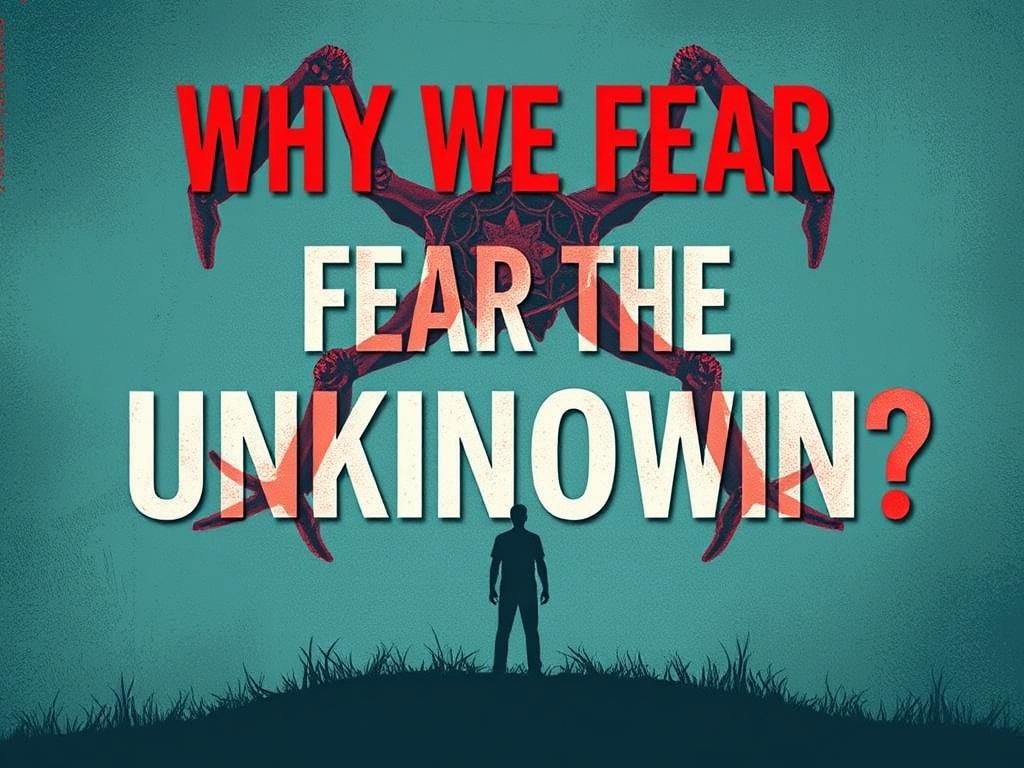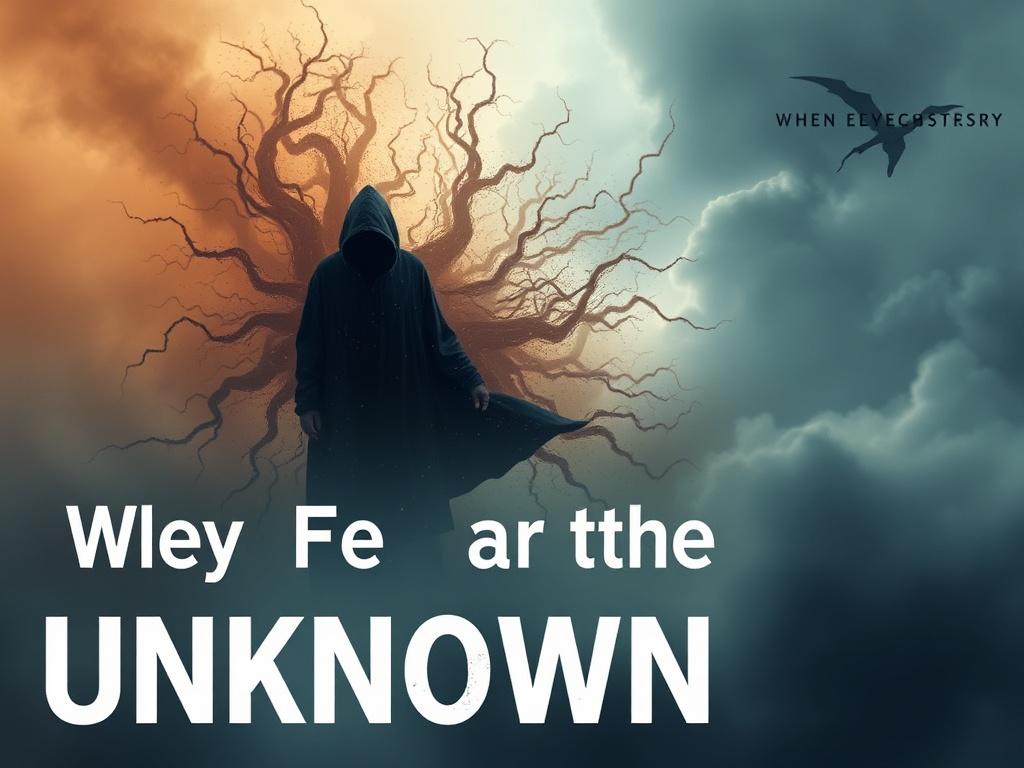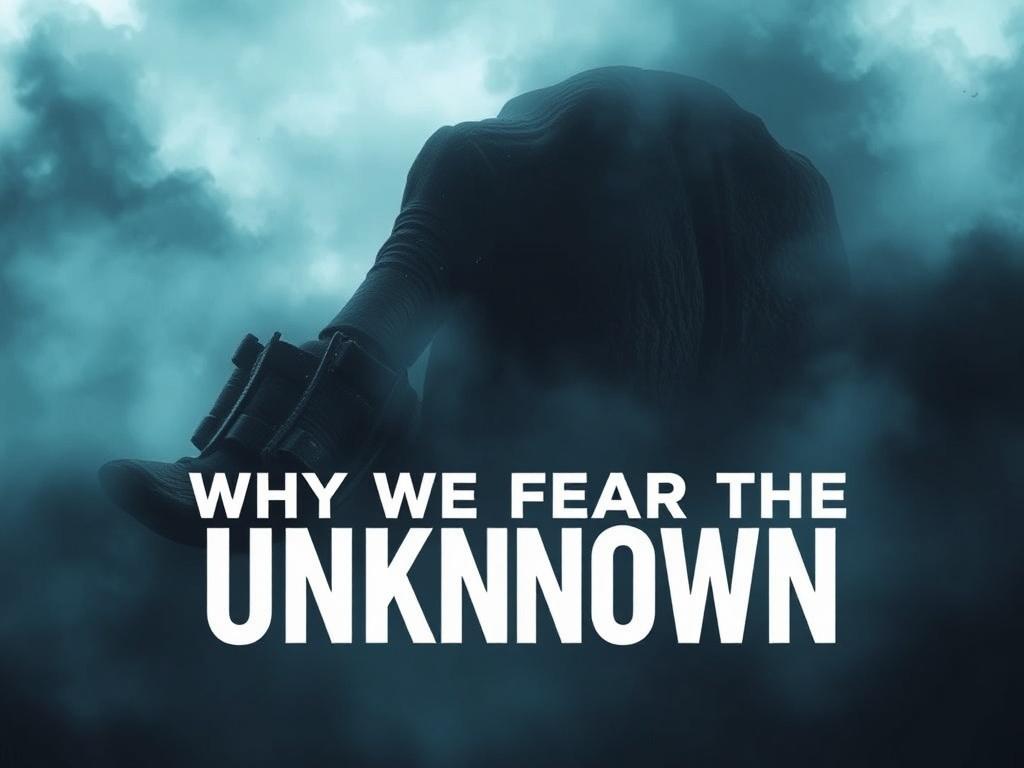Fear of the unknown is a universal experience that has shaped human behavior for millennia. Whether it’s stepping into a dark room, embarking on a new career, or facing life-altering changes, the anxiety that arises from uncertainty can be overwhelming. But why do we fear what we cannot see, predict, or fully understand? This article will take you on a journey into the complex psychology behind our fear of the unknown, exploring how it influences our minds, our societies, and even our personal growth. By the end, you’ll see that while this fear feels natural, it doesn’t have to control us.
The Root of the Fear: Why We Fear the Unknown
At its core, the fear of the unknown stems from a basic survival instinct. From an evolutionary perspective, our ancestors needed to respond quickly and decisively when faced with uncertain situations, as these often meant potential threats. When confronted with something unfamiliar, the brain triggers a fight-or-flight response, alerting the body to danger and preparing it to act. This primal reaction helped keep early humans alive, but in today’s world, it often causes unnecessary anxiety.
This fear is not just about immediate physical danger, though; it also extends to emotional and psychological realms. The blank canvas of the unknown ignites our imagination, often leading us to envision worst-case scenarios. Our brains wired to seek patterns and predict outcomes struggle when information is incomplete or ambiguous. This struggle intensifies our discomfort and evokes feelings of vulnerability.
How Fear of the Unknown Manifests in Everyday Life
You might not realize it, but fear of the unknown shapes many of your daily decisions. Consider moments like starting a new job, moving to a new city, or even trying a new dish at a restaurant. In all these situations, the absence of familiarity can trigger hesitation or avoidance. Psychologists often note that this type of fear is linked to our desire for control—a sense that if we can predict or understand our environment, we feel safer.
Sometimes, it appears in subtle ways:
- Procrastination: Putting off decisions because outcomes feel uncertain.
- Clinging to the familiar: Preferring routine, even when it’s not enjoyable.
- Seeking reassurance: Constantly asking for advice or validation before acting.
- Stress and anxiety: Physical symptoms like a racing heart when facing new situations.
These behaviors reveal how deeply the fear of the unknown affects our mental and emotional well-being.
Science Behind the Fear: How Our Brain Processes Uncertainty

Neuroscience helps explain why fear of the unknown is so powerful. The brain regions involved include the amygdala, responsible for emotional processing and threat detection, and the prefrontal cortex, which manages decision-making and planning. When faced with uncertainty, the amygdala often activates first, flooding the body with adrenaline and heightening alertness.
Interestingly, studies show that people vary widely in how sensitive their brains are to uncertainty. Some individuals tolerate ambiguity well and are more willing to take risks, while others experience intense fear and seek certainty at all costs. This trait is sometimes referred to as «intolerance of uncertainty» and has been linked to disorders like generalized anxiety disorder and obsessive-compulsive disorder.
The Role of Dopamine and the Reward System
While fear dominates the initial reaction to the unknown, the brain’s dopamine system, which governs pleasure and reward, also plays a role. Humans are naturally curious, and the anticipation of discovering something new can generate excitement. This push-and-pull between fear and curiosity keeps us both cautious and motivated.
Here’s a simple table summarizing how the brain balances fear and curiosity:
| Brain Component | Function | Response to Unknown |
|---|---|---|
| Amygdala | Emotional processing, threat detection | Triggers fear and anxiety |
| Prefrontal Cortex | Decision making, risk assessment | Evaluates possible outcomes |
| Dopamine System | Reward, motivation, pleasure | Encourages curiosity and exploration |
Understanding this balance helps explain why some people embrace new experiences while others retreat.
Cultural and Social Influences on Fear of the Unknown

Our fear of the unknown is not only shaped by biology but also by culture and social experiences. Different societies have varying tolerance levels for uncertainty, often influenced by historical events, traditions, and social norms. For instance, cultures with a high emphasis on predictability and rules may cultivate a stronger fear of uncertainty, while others that celebrate flexibility and innovation might foster greater acceptance of the unknown.
Social environments also play a significant role. When surrounded by supportive communities, people are better able to face uncertainty with confidence. Conversely, isolation or constant exposure to negative news can amplify fear. Religion, media, and education all contribute to shaping our perceptions of the unknown, either as a source of anxiety or as an opportunity.
How Fear of the Unknown Affects Collective Behavior
Fear of the unknown can lead to collective responses like xenophobia, resistance to change, or the rise of conspiracy theories. When people feel uncertain about societal direction, they may cling to familiar ideologies or distrust outsiders. This dynamic can hinder progress or create social divides.
On the positive side, communities that learn to channel fear productively often innovate and grow stronger in adversity. Movements for social change, scientific breakthroughs, and creative expression frequently arise from challenging what is unknown or uncertain.
Personal Growth and the Fear of the Unknown
While fear of the unknown can be paralyzing, it can also spur personal growth. By stepping beyond our comfort zones and facing uncertainty, we develop resilience, adapt to changing circumstances, and discover new strengths. Many of life’s most rewarding experiences come from embracing rather than avoiding the unknown.
Here are some practical ways to shift your relationship with uncertainty:
- Practice mindfulness: Staying present reduces catastrophic thinking about the future.
- Challenge assumptions: Question the beliefs that exaggerate fears.
- Gather information: Reducing ambiguity can ease anxiety.
- Take small risks: Build confidence by gradually exposing yourself to new experiences.
- Seek support: Talk to friends, mentors, or therapists who can help you navigate change.
Embracing uncertainty is not about removing fear altogether but learning how to move forward despite it.
Stories of Courage: Examples of Overcoming Fear of the Unknown
History is filled with individuals who faced the unknown head-on, transforming fear into triumph. Explorers venturing into uncharted lands, inventors pushing the boundaries of technology, and activists fighting for justice all share a common thread—they confronted uncertainty and took action.
For example, consider innovators like Marie Curie, who braved untested scientific paths, or Malala Yousafzai, who spoke out in the face of danger for education rights. These stories remind us that fear of the unknown does not have to be a barrier but can fuel perseverance and discovery.
Fear of the Unknown in Modern Life: Challenges and Opportunities
Our fast-paced, ever-changing world exacerbates the fear of the unknown. Technological advances, global crises, and shifting social landscapes create constant uncertainty. This can produce stress but also opens new horizons for creativity, connection, and reinvention.
Technology, for example, simultaneously reveals new possibilities while introducing unfamiliar risks. Learning how to adapt to new tools and environments is essential in reducing fear and becoming more resilient. Social media and information overload can heighten anxiety about the future but also provide platforms for learning and community support.
Understanding this dual nature encourages us to accept uncertainty as an inevitable and necessary part of life.
Tools and Techniques to Manage Fear of the Unknown
Managing fear of the unknown involves both mindset shifts and practical strategies. Here’s a table of helpful methods:
| Technique | Description | Benefit |
|---|---|---|
| Mindfulness Meditation | Focusing on the present moment | Reduces anxiety and rumination |
| Cognitive Behavioral Therapy (CBT) | Challenging negative thoughts | Improves emotional regulation |
| Gradual Exposure | Incrementally facing fears | Builds tolerance and confidence |
| Journaling | Writing about fears and possibilities | Clarifies feelings and perspectives |
| Goal Setting | Breaking down uncertainty into steps | Enhances sense of control |
Using these techniques can transform fear into empowerment, making the unknown less daunting and more manageable.
Looking Ahead: Embracing Uncertainty as a Path to Fulfillment
Ultimately, the fear of the unknown is a complex but fundamentally human experience. It alerts us to potential risks but also highlights areas ripe for growth. By recognizing the origins of our fear, understanding the brain’s responses, and implementing practical strategies, we can learn to coexist with uncertainty rather than be ruled by it.
Through stories, science, and personal reflection, it becomes clear that the unknown holds both challenge and opportunity. Embracing it with curiosity and courage can unlock new dimensions of life, creativity, and joy.
Summary Table: Fear of the Unknown — Causes, Effects, and Remedies
| Aspect | Description | Examples | Ways to Address |
|---|---|---|---|
| Causes | Evolutionary survival instinct, brain reaction to uncertainty, social conditioning | Fight-or-flight, intolerance of uncertainty | Education, awareness, cognitive techniques |
| Effects | Anxiety, avoidance, procrastination, social resistance | Stress, xenophobia, resistance to change | Mindfulness, support groups, gradual exposure |
| Positive Outcomes | Personal growth, innovation, resilience | Exploration, creativity, life transitions | Embracing risk, curiosity, purposeful planning |
Conclusion

Fear of the unknown touches every part of the human experience, from ancient survival instincts to modern-day anxieties about the future. While this fear can feel overwhelming, it is also a sign of our remarkable capacity for awareness and adaptation. By understanding why we fear the unknown—rooted in biology, psychology, and culture—we gain the tools to face uncertainty with greater calm and courage. Instead of seeing the unknown as a threat, what if we reframe it as an invitation to learn, grow, and discover the unexpected wonders life has to offer? The journey toward embracing uncertainty is, in many ways, the journey toward a richer, more fulfilling life.





















Это так интересно! Никогда раньше так не думала о страхе перед неизвестным — теперь понимаю, почему он так сильный и влияет на нас так глубоко!